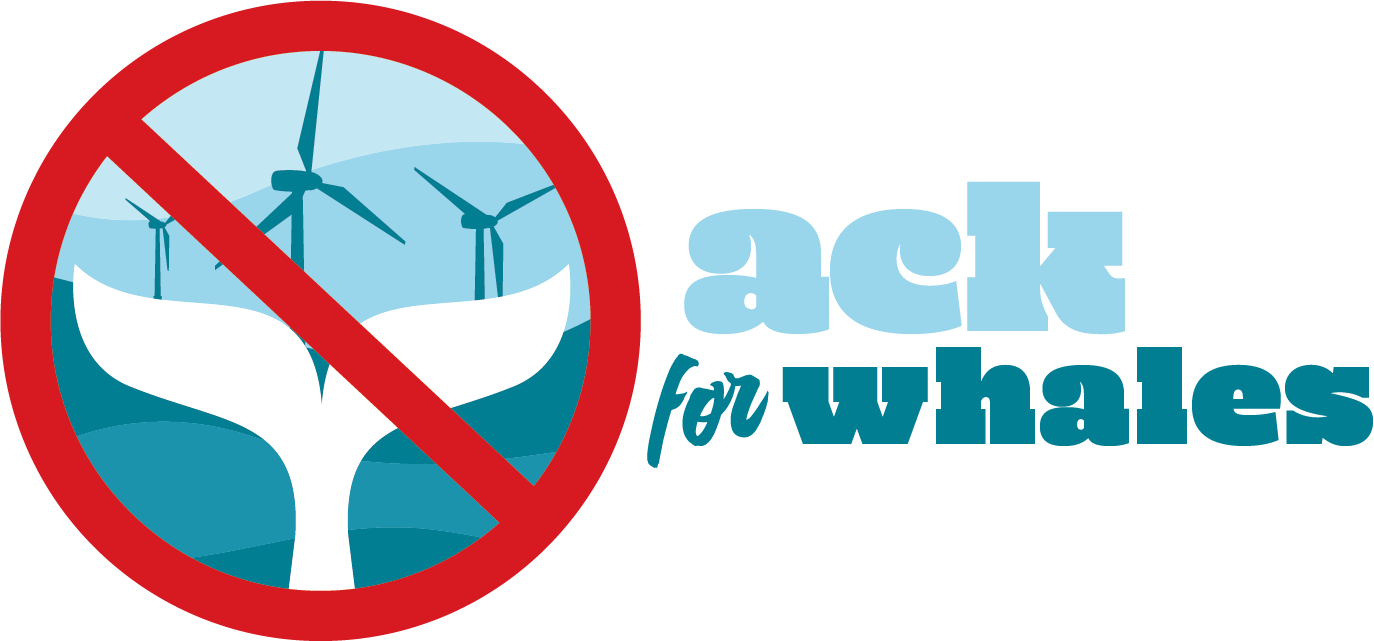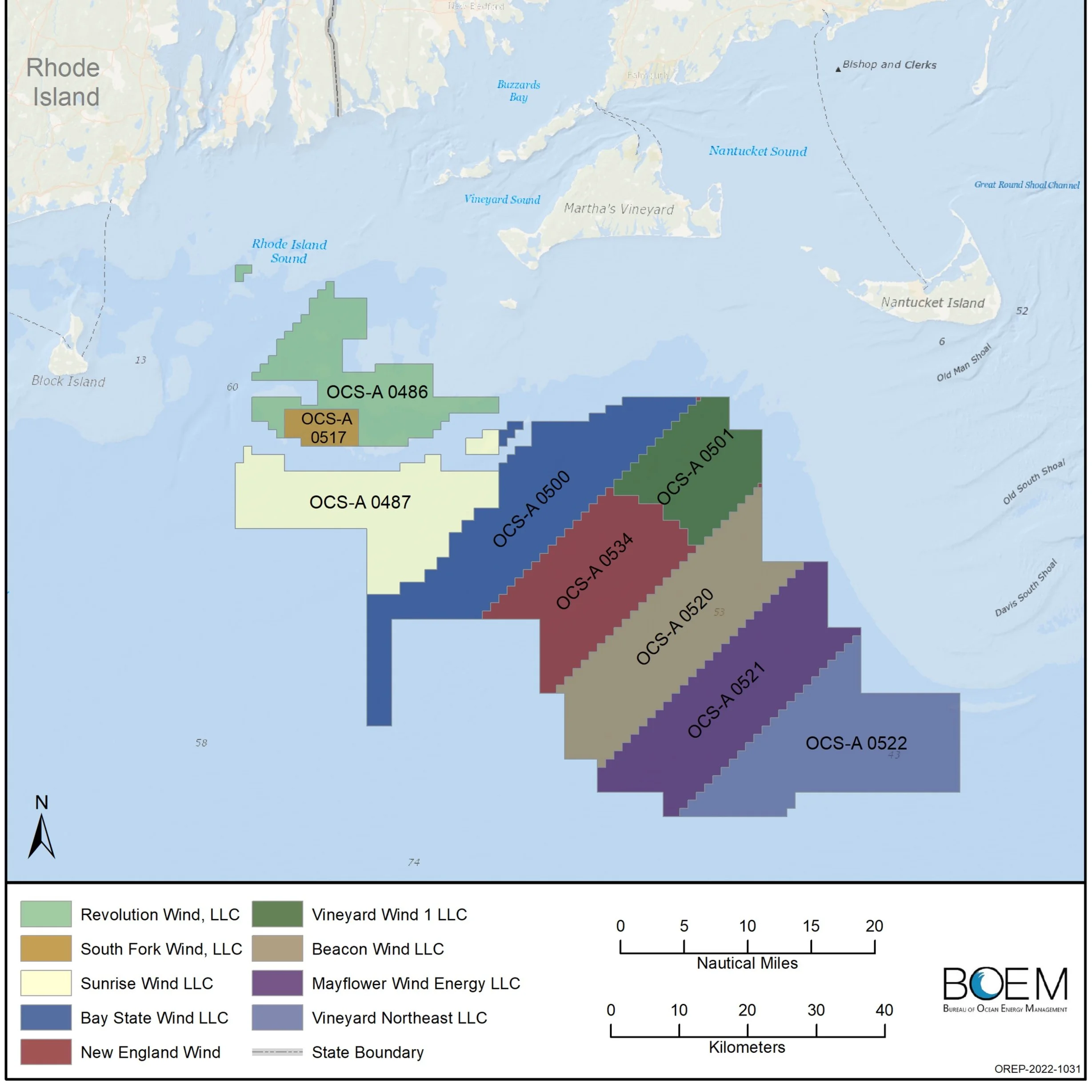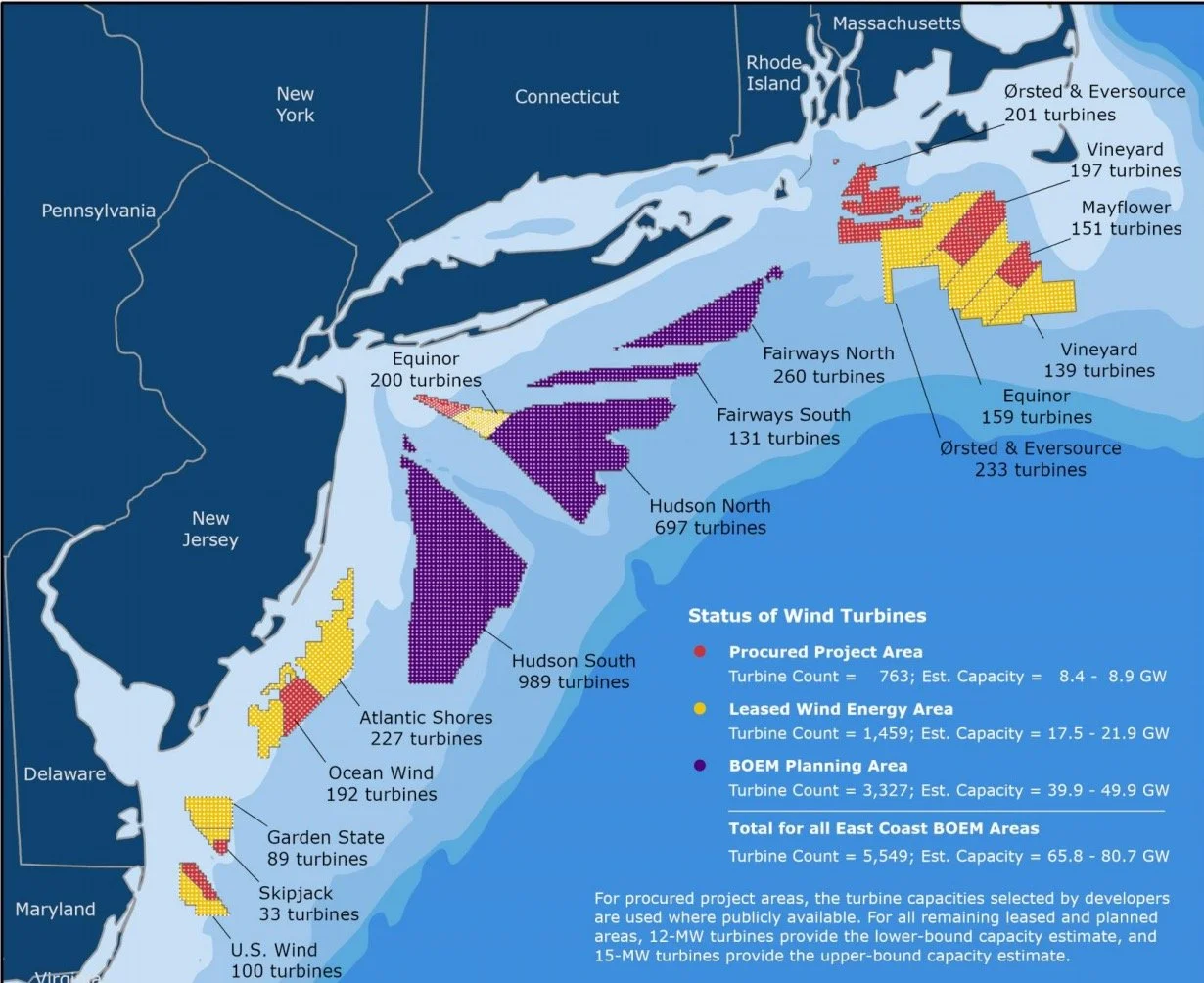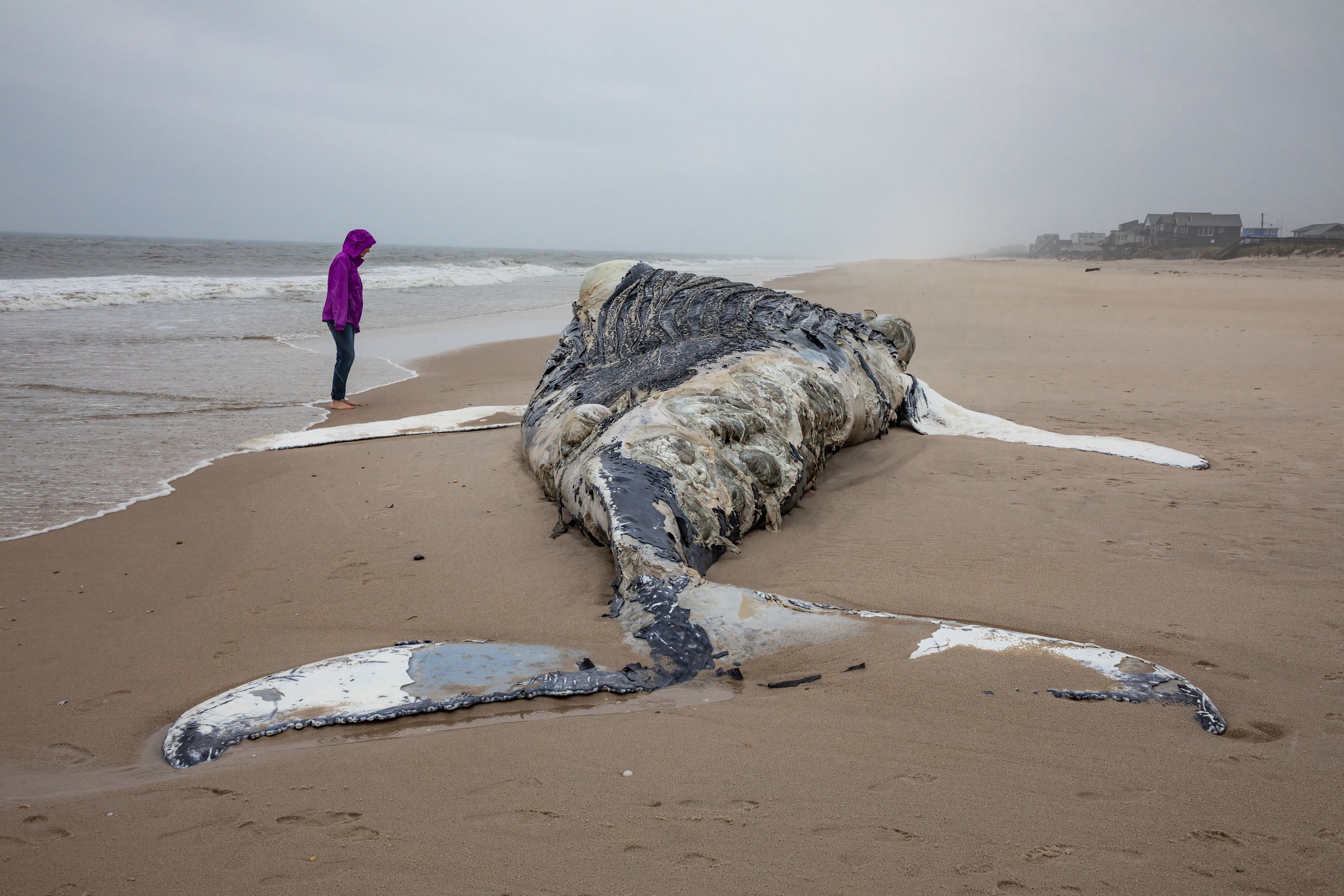
North Atlantic Right Whales
The North Atlantic Right Whale (NARW) is a federally-listed endangered species with a population that has sharply declined over the past decade. Currently, there are just over 300 individuals remaining, and female reproductive success has diminished to the point where the species faces imminent extinction without aggressive intervention and protection.
The waters south of Nantucket serve as a crucial refuge for the NARW, being the only known year-round habitat and winter foraging grounds. For the NARW to recover, these waters must be heavily protected and closely monitored. However, this same area has been identified by the Bureau of Ocean Energy Management (BOEM) for extensive offshore wind development. BOEM has issued leases for nine different wind energy projects in this region. Vineyard Wind 1 is the first to be approved by the federal government, followed by SouthCoast Wind and Park City Wind, with five more adjacent projects to come.
Each project involves potentially fatal pile driving deep into the ocean floor and requires thousands of vessel trips per year for construction, operation, and maintenance. This activity poses a significant threat to the NARW. Ultimately, the waters south of Nantucket, which provide essential refuge for the NARW, will be covered with wind turbine power plants covering an area larger than the state of Rhode Island. This development could cause direct harm to the critically endangered NARW and potentially destroy one of the whale’s last remaining refuges and nursery sites. Without significant changes to these plans, the survival of the NARW remains in grave jeopardy.
Whales and turbines don’t mix!
-
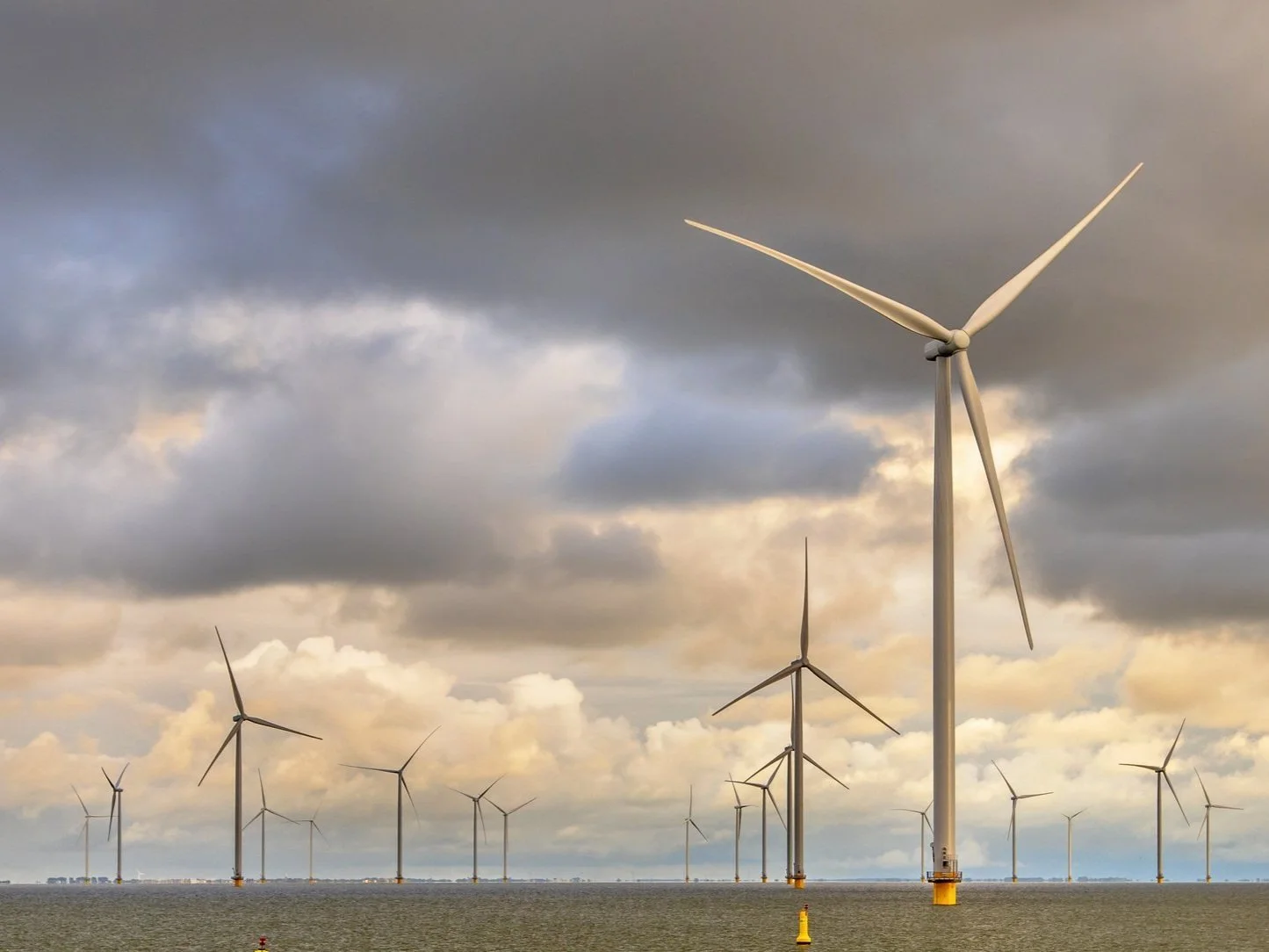
Reasons why some people oppose industrial wind turbine development:
• Damage to pristine ocean views
• Higher electric rates
• Threats to coastal economies -
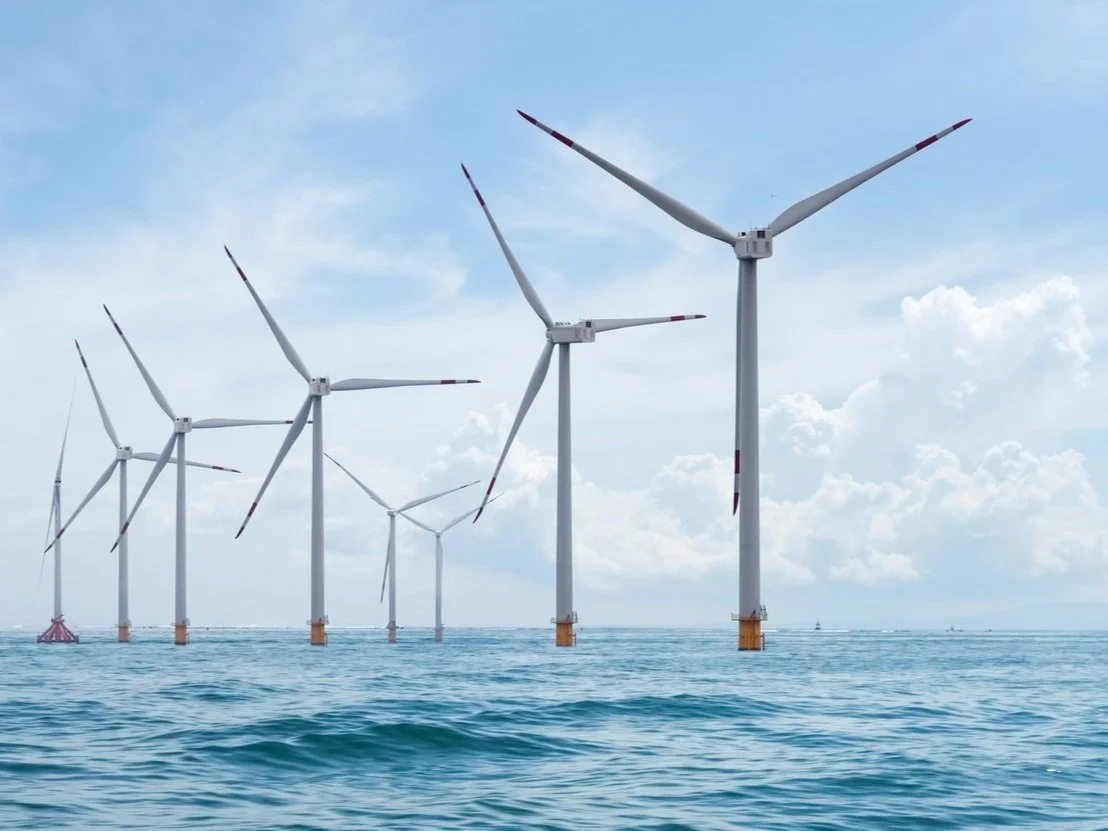
OUR concern is turbines and offshore substations with vast undersea cable systems will:
• Damage Nantucket’s fragile marine ecosystem
• Compromise Nantucket’s National Historic Landmark designation
• Wreak havoc on native birds and fish
• Cause direct harm to the critically endangered North Atlantic Right Whale, potentially destroying one of the whale's last remaining refuges and nursery sites. -

OUR lawsuit aims to halt the process allowing for proper studies and steps to be taken to protect:
• Nantucket‘s pristine environment
• The North Atlantic Right Whale
• The North Atlantic Right Whale (NARW) is a federally-listed endangered species whose population has dropped sharply in the last ten years.
• Currently, there are just over 300 individuals – that’s it – and female reproductive success has diminished to the point where the species will soon become extinct absent aggressive intervention and protection.
• As it happens, the waters south of Nantucket are a refuge for NARWs. In fact, these waters are the only known year-round habitat and winter foraging grounds for NARWs. If the species is going to recover, the waters off Nantucket must be heavily protected and closely monitored.
• Unfortunately, this is precisely the area that BOEM has identified for extensive offshore wind development. Specifically, BOEM has issued leases for 9 different wind energy projects, all in this same area. Vineyard Wind 1 is the first to be approved by our federal government. It will be followed by SouthCoast Wind and Park City Wind. The other 5 adjacent projects will come soon after.
• Each project will require potentially fatal pile driving hundreds of feet into the ocean floor and thousands of vessel trips per year for construction, operating and maintenance.
• In the end, the waters south of Nantucket – the same waters that provide critical refuge for NARW – will be covered with wind turbine power plants covering and area larger than the State of Rhode Island!
Wind lease area south of Nantucket will encompass 1600 turbines and will be larger than the State of Rhode Island.
Since December of 2022 more than 72 dead whales have washed up on the shores along the East coast. This is an unprecedented rate and correlates directly with increased sound generating survey work for offshore wind projects. This validates our concerns about the impact of these offshore projects on marine life and specifically whales.
